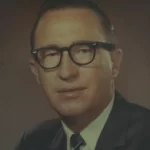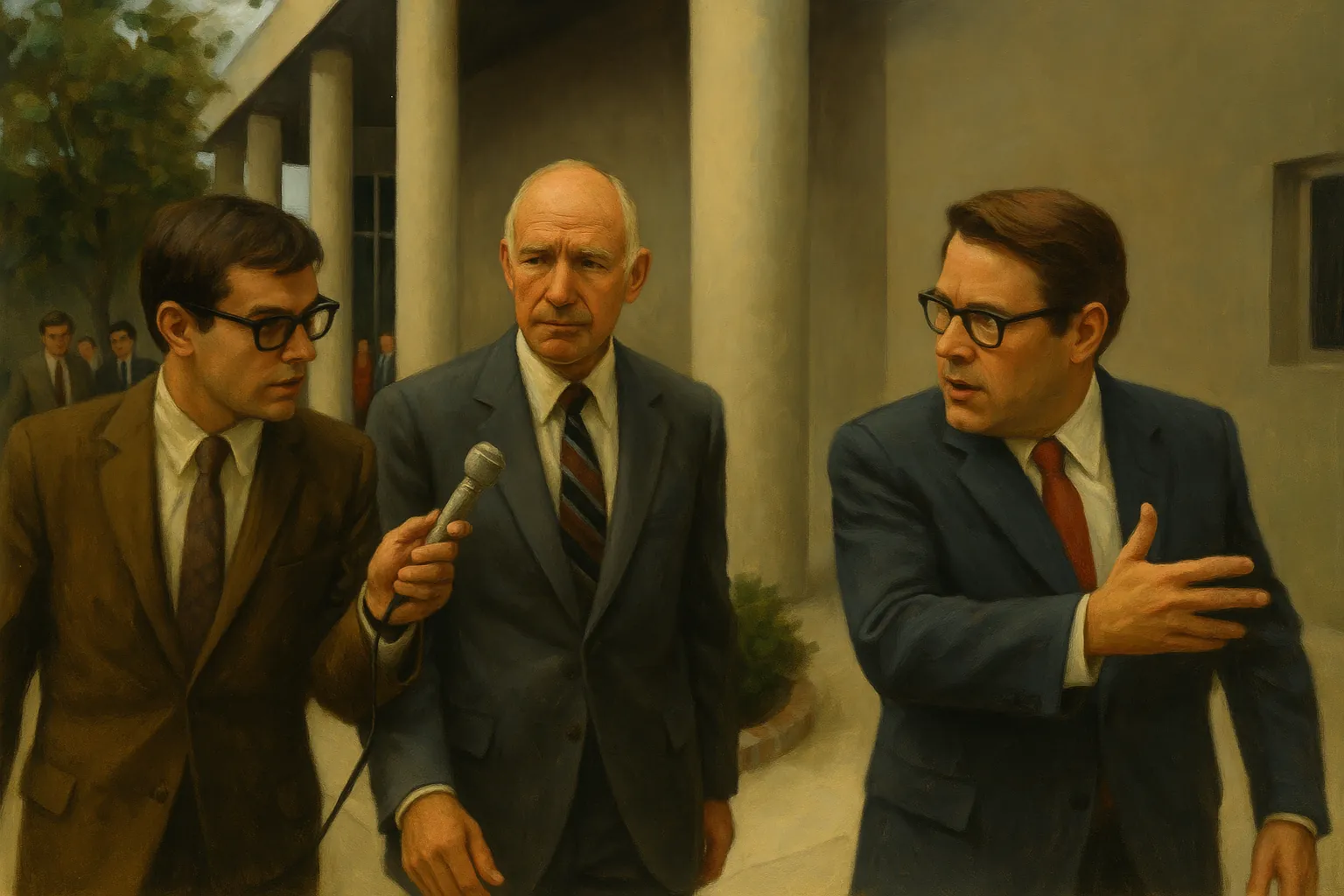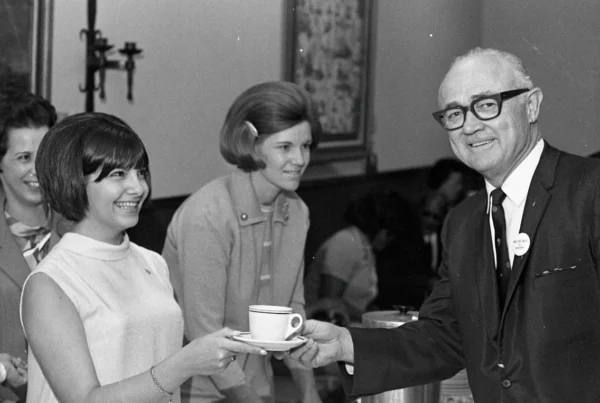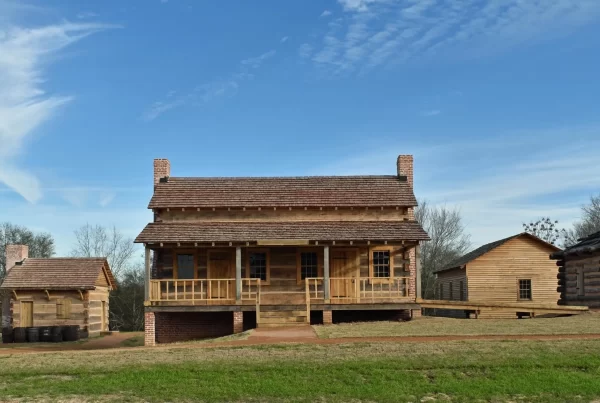In early 1970s Texas, a complex stock fraud scheme involving state officials and a Houston banker triggered one of the most consequential political reckonings in state history. Known as the Sharpstown scandal, the episode exposed the ease with which public power could be bent to serve private financial interests — and ultimately led to sweeping ethics reforms, electoral upheaval, and the creation of modern campaign finance and disclosure laws in Texas. It remains one of the clearest examples in state history of how scandal can catalyze structural change.
A Banker’s Bet on Influence
At the center of the scandal was Frank W. Sharp, a Houston real estate developer and banker who controlled both the Sharpstown State Bank and National Bankers Life Insurance Corporation (NBL). Sharp sought legislation from the Texas Legislature that would make it easier for his insurance company to sell stock and expand operations. In return, he offered key lawmakers and state officials a chance to buy NBL stock at a discounted rate with loans from his bank — then profit by selling it at artificially inflated prices after a favorable bill passed.
The scheme was a classic form of insider enrichment, and it ensnared some of the highest officials in Texas government. Among those implicated were House Speaker Gus Mutscher, Governor Preston Smith, Lieutenant Governor Ben Barnes, and other legislators who had allegedly profited from the stock arrangement.
SEC Investigation and Public Exposure
The scheme might never have come to light were it not for a federal investigation. In 1971, the U.S. Securities and Exchange Commission (SEC) filed a civil complaint against Frank Sharp and others, alleging stock fraud and insider manipulation related to National Bankers Life shares. The SEC’s filing named Speaker Gus Mutscher, House Appropriations Committee chair Tommy Shannon, and Representative Rush McGinty as participants who had profited improperly from Sharp’s coordinated effort to push favorable legislation through the Texas House of Representatives.1
Although the bill benefiting Sharp — which would have allowed more liberal banking of insurance company stock — ultimately failed in the Texas Senate, the damage was done. The SEC’s complaint laid bare the mechanics of the scheme: Sharp issued NBL stock to lawmakers using loans from Sharpstown State Bank, and legislators allegedly voted with the understanding that their personal financial gains would follow.2
The scandal broke publicly in early 1971 and immediately dominated headlines. The combination of documented profiteering, backroom deals, and involvement at the highest levels of state government created a political firestorm.
Criminal Indictments Against Officials
In the wake of the SEC revelations, a Travis County grand jury handed down criminal indictments against several Texas officials. Among them were Speaker Gus Mutscher, Representative Tommy Shannon, and Rush McGinty — all charged with conspiracy to accept a bribe and abuse of official capacity.3

Governor Preston Smith and Lieutenant Governor Ben Barnes were never indicted, but the scandal effectively ended both men’s political careers.
The scandal also galvanized a group of reform-minded legislators — later known as the “Dirty Thirty” — who publicly challenged the leadership of Speaker Mutscher and called for accountability. This bipartisan group, which included future Texas Governor Dolph Briscoe and State Representative Frances Farenthold, became a symbol of resistance to the entrenched, opaque political power structure in Austin.4
The trials culminated in 1972 with the conviction of Speaker Mutscher and his associates on charges of conspiracy to accept a bribe. Mutscher was sentenced to five years’ probation and resigned from office. Though the legal penalties were relatively light, the scandal’s impact on public trust and political realignment was far-reaching.
Legislative Ethics Reforms
Public outrage over the scandal created a political climate ripe for reform. In the 1972 elections, voters swept dozens of incumbents out of office — including Governor Preston Smith, Lieutenant Governor Ben Barnes, 15 of 31 senators, and 77 of 150 sitting Texas House members.5 In their place came a wave of legislators who had campaigned explicitly on promises of transparency and ethics reform. Democratic rancher and businessman Dolph Briscoe was elected governor, campaigning on a platform of honesty and restoration of public trust. Briscoe, a political outsider but deeply connected with the rural landholding class, represented a stabilizing alternative to the scandal-tainted establishment and helped restore credibility to the Texas Democratic Party.
With Briscoe in office and public pressure at a peak, the 63rd Texas Legislature convened in 1973 and passed a suite of landmark legislation aimed at curbing the influence of money and undisclosed interests in public life. Chief among these was the Texas Ethics and Financial Disclosure Act, which required state officials and candidates to file annual financial statements disclosing sources of income, assets, and potential conflicts of interest.6 This was the first time Texas had imposed such broad disclosure rules on public servants.
The Legislature also passed laws requiring:
- Lobbyist registration and activity reporting
- Open records and open meetings reforms, expanding public access to government deliberations7
- Campaign finance disclosures, laying the groundwork for modern reporting rules on contributions and expenditures
Perhaps most significantly, voters approved a constitutional amendment creating the Texas Ethics Commission, a body tasked with enforcing campaign finance and ethics laws. Though its authority was limited at the time, the creation of a permanent oversight agency was a clear sign that the Legislature could no longer regulate itself in secret.
Legacy and Limitations
The reform wave unleashed by Sharpstown did not end with the 63rd Legislature. By the mid-1970s, Texas lawmakers convened a full constitutional convention in an effort to modernize state government even further. Though that convention ultimately failed to ratify a new constitution, it reflected the deep appetite for reform that Sharpstown had set in motion.
Yet even after this era of reform, business and industry groups continued to shape legislation through campaign contributions, lobbying, and behind-the-scenes access. While direct quid pro quo arrangements that personally enrich lawmakers became more rare — or at least less visible — the broader patterns of influence remained.
Loopholes in disclosure laws and limited enforcement capacity allowed these dynamics to persist. The Texas Ethics Commission, for example, has often been criticized for lacking independence and the authority to hold powerful officials accountable.
Yet even after this era of reform, business and industry groups continued to shape legislation through campaign contributions, lobbying, and access to decision-makers. While direct quid pro quo arrangements that personally enrich lawmakers became less common — or at least less visible — the influence of organized interests remained strong. Over the years, gaps in the new disclosure laws and limited enforcement tools raised questions about the state’s ability to police ethical boundaries. The Texas Ethics Commission, for example, has often faced criticism for its lack of independence and limited power to investigate or sanction high-ranking officials.8
Nonetheless, the Sharpstown scandal remains a watershed moment — a case study in how private financial interests can co-opt public institutions, and how legal exposure, public outrage, and electoral consequences can still reshape a political system.
Sources
- U.S. Securities and Exchange Commission v. Frank Sharp et al., Civil Action No. 71-H-175 (S.D. Tex., 1971). ↩︎
- Houston Chronicle, “SEC Names Officials in Stock Fraud,” February 1971. ↩︎
- Texas v. Gus Mutscher et al., Travis County District Court, Cause No. 47,586 (1972). ↩︎
- Janice Woods Windle, “Politics and the People: The Dirty Thirty’s Fight for Reform,” Texas Monthly, May 1973. ↩︎
- Texas Secretary of State, Election Returns: General Election 1972, Austin, TX. ↩︎
- Texas Government Code § 572.021 (Ethics and Financial Disclosure Act of 1973). ↩︎
- Texas Government Code §§ 551.001 et seq. (Open Meetings Act); § 552.001 et seq. (Public Information Act). ↩︎
- Texas Ethics Commission Reports and Legislative Hearings, 2003–2022. ↩︎



